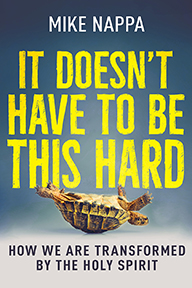|
Getting your Trinity Audio player ready...
|
An Editorial Team reason for rejection
Dear Mr. Nappa,
I’m pleased to send your publishing company a guaranteed bestseller…
Dear Mike,
After studying your company, I’m confident you will be overjoyed about receiving my proposal for a new romance series based in 1800s Georgia…
Dear Nappaland Literary Agency,
Here is the proposal you requested to see…
What do the authors of all three of these letters have in common? They’re all big fat liars.
What’s worse is that they think they won’t immediately be seen as liars—they actually think I will swallow as honesty their overhyped exaggerations and will fall all over myself to represent their work to publishers.
Wrong.
All these letters do is tell me that these writers don’t have legitimate talent so they’ve turned to exaggeration and half-truth in hopes that will be an acceptable substitute. Trouble is, this is one of the recurring mistakes beginning writers make—I saw it repeatedly when I was an acquisitions editor, and I continue to see it with my literary agency. It always ends badly.
For instance, today I actually got a query from a writer who crowed, “The market for this book should rival that for the Holy Bible!” He’s telling me his book will best the bestselling book of all time? Seriously? He’s lying—and we both know it.
But still, desperate writers resort to desperate fictions like these (and many others!) to get agents and/or editors to read their books, blissfully unaware of the self-sabotage they are wreaking.
Take those three sample letters above (all of which are amalgams of real letters I’ve received). If there really were a way to “guarantee” a bestseller, we’d all be rich already and I wouldn’t need you. Or even better, you could simply self-publish, make millions, and happily thumb your nose at all rejection-writing jerks like me. Likewise, if you really had studied my company, you’d know that there’s no way I’m going to represent your romance novel—and that I require a reference from an existing Nappaland author before I’ll even look at your work. And that poor third, honesty-challenged bloke must think I’m an idiot. If I had actually requested to see your proposal, I’d recognize your name, or at least have your title in my “pending” log. You get the idea.
These tactics of exaggeration or white lying never work. At this point, people on my side of the desk have all heard the most creative truth-stretching efforts hundreds of times. Those little lies may seem new and exciting to you, but they’re easier to spot than you think. Still people send them on, no doubt giggling with mischievous glory as they envision how their little deception has tricked us into reading their subsequent delightful prose. These writers are like a child who claims before-dinner innocence while chocolate chip cookie-smear still paints his cheeks.
Listen, as soon as you lie to me, our relationship is over. I’m not even going to read past your cover letter. Consider your book rejected.
What You Can Do About It
1. Let Your Writing Do the Talking.
You know what makes me want to represent a book? The book. Not your cover letter. Not your exaggerated promises. Not your American-Idol-wannabe pseudo confidence. Not your faked attempts at professional connection. Not even your purty grin and cowpoke sense o’ humor.
So when you’re pitching a book, don’t look for ways to tell me what you think I want to hear. Don’t try to talk me into reading your book by shading the truth about it or about you. Don’t try to impress me with a few little white lies. Chances are, you’ll only end up irritating me.
Instead, get me into your writing samples honestly, with realistic expectations and a basic promise that you won’t waste my time. That’s what matters. Just shut up and let your writing do the talking. If it’s got the potential you think it does, you’ll hear from me (and others like me).
2. Don’t Assume You Need a Gimmick to Get My Attention.
This is the realm of the immature writer. It’s a person who doesn’t feel confident about suggestion #1 above. But you must remember, even though it’s hard initially to get through to an agent or an editor, we all make money when someone like you does get through with something salable and well-crafted. So there’s no need for you to “gimmick” your way in the door with false pretenses or hype or even colorful proposal packages. (Let’s face it, if your writing’s not good, you’re just wasting that confetti you put in the envelope.)
Get out of the gimmick business. Get into the writing business. That’s how you’ll get my attention.
3. Make Honesty Your Best Policy.
Honesty is always the best way to approach a new editor or agent. It may not always get you what you want, but it will usually get you a measure of respect…and respect goes a long way in publishing circles.
For instance, as a rule I don’t read new authors without a recommendation from an existing Nappaland author or industry associate (such as an editor I’ve worked with or a colleague I respect). But I will admit to occasional lapses in this policy. I have, on rare occasions, gotten a query from an author that said something like, “I know you don’t normally read ‘cold call’ submissions, and I certainly respect that. But after studying your agency and examining the kinds of books you’ve been successful with, I honestly believe you might be interested in my new book. I’d like to ask you to make an exception just this once. May I send you the proposal for….”
This author has been honest with me—and although I don’t always make an exception, I do always respect his or her honesty. Because of that, this writer might get a second look.
Looking for more? Check out these links:








